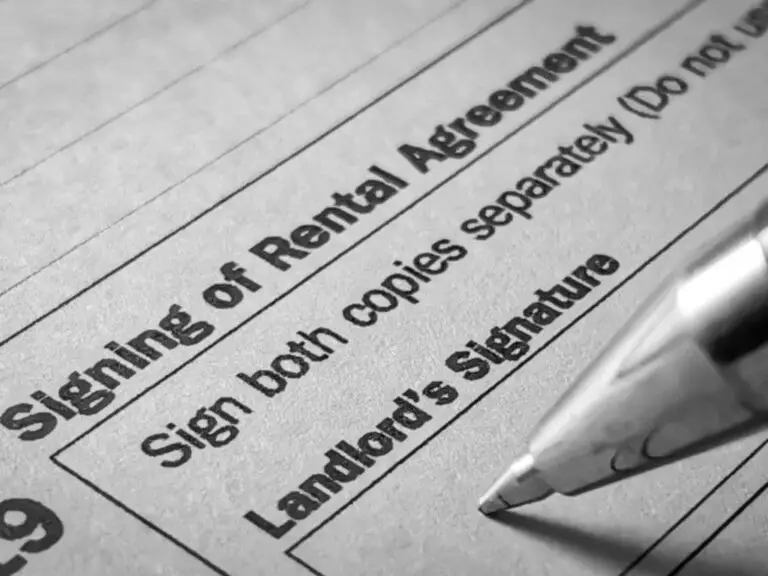Does Claiming My Parent as Dependent Affect Her SSI or SS benefits?
Caring for aging parents can be a major responsibility, both emotionally and financially. As parents grow older and require more assistance, many adult children find themselves providing financial support. This support may make you wonder if you can claim your parent as a dependent on your taxes. However, doing so could impact government benefits your parent receives, like Social Security and Supplemental Security Income (SSI).
Does claiming your parent as dependent affect her SSI or SS benefits?
Claiming a parent as a dependent can affect their Supplemental Security Income (SSI) benefits, as the financial support you provide is considered unearned income and may exceed SSI’s strict income limits. However, claiming a parent as a dependent does not impact their Social Security retirement or disability benefits, which are based on their own work history and not affected by outside financial support.
This article will explore the eligibility requirements, income limits, support tests, and tax implications of claiming an elderly parent as a dependent.

Can I Claim My Parent as a Dependent if She Receives SSI or SS Benefits?
In most cases, you can claim your parent as a dependent even if she receives Social Security or SSI benefits. However, there are specific eligibility requirements you must meet for your parent to qualify.
The first test is that your parent must be related to you in order to be claimed. This includes parents, grandparents, step-parents, in-laws (mother, father, son, daughter), and some other relatives.
The second test requires that your parent be a U.S. citizen, national, or resident alien. They will need a valid Social Security number or Individual Taxpayer Identification Number (ITIN).
Third, your parent cannot file a joint tax return if you are claiming them as a dependent. And fourth, they must meet the income limits set by the IRS. For tax year 2022, your parent’s gross income must be less than $4,400 to qualify as your dependent (with some exceptions for Social Security and other non-taxable income).
The fifth and final test is that you must provide over half of your parent’s financial support for the year. This support test factors in housing, food, medical care, clothing, and other necessities you pay for.
As long as your parent meets these five tests, you can generally claim them while they collect Social Security retirement or disability benefits. The SSI program involves stricter income limits, which claiming your parent may affect.
How Does Claiming a Parent as a Dependent Affect Her Benefits?
Claiming a parent who receives government benefits as a dependent has different potential impacts depending on the specific program.
Social Security retirement benefits are based on your parent’s own work history and payroll tax contributions. This income is not means-tested or affected by outside financial support. Therefore, claiming your parent as a tax dependent has no impact on their Social Security retirement payments.
The same is true for Social Security disability benefits. Your parent can qualify for SSDI based on their disability status and work history. As long as you meet the five dependency tests, claiming your disabled parent does not reduce their benefit amount.
One caveat is that the Social Security Administration does limit how much your parent can earn from working while collecting disability. So any job income, combined with your support, could push them over the income limits for qualifying as a dependent.
SSI benefits involve stricter income and resource limits. This needs-based program is intended for disabled or elderly people with very low incomes and assets.
Your financial support for a parent who receives SSI counts as unearned income. If you claim them as a dependent by providing over half of their support, their total income is likely to exceed the SSI limits. This can result in a reduction or loss of their SSI benefit payments.
Even if you do not claim your parent who gets SSI, any cash, food, or housing you provide is considered in-kind income. This can still cause their SSI payment to be lowered. It’s important to be aware of these program rules if your parent relies on SSI.
What are the Eligibility Requirements for Claiming a Parent as a Dependent?
To properly determine if you can claim your parent as a dependent, you need to understand the specific eligibility rules. The IRS classifies qualifying dependents into two categories – qualifying children and qualifying relatives. A parent or other relative falls under the qualifying relative criteria. Here are two key aspects of these requirements:
A qualifying relative must be related to you in one of the approved ways outlined earlier. This includes parents, step-parents, grandparents, in-laws, and some other family members. Unrelated individuals generally cannot be claimed as dependents, unless they lived with you as a member of your household all year.
In addition to the relationship test, a qualifying relative must meet income limits set by the IRS. For 2022, your dependent’s gross income cannot exceed $4,400 (some exclusions apply for Social Security and tax-free income). This income test ensures that high-earning relatives do not qualify for this tax advantage.
To claim a qualifying relative like a parent, you must provide over half of their financial support for the year. This involves paying for their housing, food, medical expenses, transportation, clothing, and other necessities.
When calculating support, it’s important to understand your parent’s adjusted gross income (AGI). Certain types of income like Social Security benefits and tax-exempt interest do not count as part of AGI. However, wages, dividends, interest, and other taxable income does factor into their total income.
Medical expenses can play a key role in meeting the support test for a dependent parent. Even if you do not provide over half of their basic living expenses, paying for substantial medical and dental costs can help you reach the support threshold to claim your parent.
Can I Claim My Parent as a Dependent if She Lives in a Nursing Home?
Caring for an elderly parent often involves difficult decisions about the type of living arrangement that will best meet their needs. If your parent resides in a nursing home or assisted living facility, how does this impact claiming them as a dependent?
Older Americans who require round-the-clock care often rely on programs like Medicaid to cover nursing home expenses. Medicaid is a combined federal-state program that provides medical assistance and long-term care coverage for very low-income individuals.
To qualify for Medicaid long-term care coverage, your parent must meet certain income and asset limits. In most states, their monthly income cannot exceed $2,382 for 2022. Total assets are restricted to $2,000 or $3,000 depending on marital status.
Claiming your parent as a dependent while they are receiving Medicaid nursing home benefits could push their income over the eligibility limits. This is an important consideration, as losing Medicaid coverage of a nursing home stay can be financially devastating.
If your parent resides in a nursing home and receives Social Security disability benefits, the impact of claiming them as a dependent depends on their specific situation.
SSDI has no income or asset limits, so claiming them won’t directly affect eligibility. However, if their total income from SSDI, pensions, investments, and your support exceeds the $4,400 limit for dependents, you cannot claim them.
For parents who receive SSI disability benefits, the program rules are more restrictive. Your financial support, including paying their share of nursing home costs, can result in reduced SSI payments or loss of eligibility. Consulting a tax professional is advisable to understand the implications.
Can I Claim My Parent as a Dependent if She is Married?
Married seniors have several options when it comes to filing their taxes. If your parent is married, this can impact your ability to claim them as a dependent. Here are some key factors to consider.
If your parent is married and files a joint tax return with their spouse, you cannot claim them as a dependent. Filing jointly violates one of the basic tests for qualifying relatives.
However, if your married parent files their taxes as “married filing separately”, you may be able to claim them. To qualify, you would still need to provide over half of their individual support for the year. Their income from all sources, including spousal support from their partner, must be under $4,400.
There are a few reasons a married senior may choose to file separately from their spouse. For instance, if one spouse resides in a nursing home and the other doesn’t, separate filing may allow the community spouse to exclude certain income and assets from being counted by Medicaid.
If you are unmarried, having a qualifying parent dependent may allow you to file as head of household. Filing as head of household provides a higher standard deduction than filing as single or married filing separately.
To claim this status, your parent must live with you for more than half the year. Providing over half of their financial support also qualifies them as your dependent for head of household filing.
If you’re married or your parent doesn’t live with you, you cannot use them to file as head of household. But you may still be able to claim your qualifying parent as a dependent even if they live elsewhere.
What are the Tax Implications of Claiming a Parent as a Dependent?
Claiming a parent as a dependent can provide certain tax advantages on your return. Here are some key ways that claiming an elderly parent may benefit you at tax time:
One major tax benefit is being able to deduct medical expenses you paid for a dependent parent. If you itemize deductions on Schedule A, you can deduct qualified medical costs that exceed 7.5% of your adjusted gross income for the year. This potentially allows you to write off thousands in medical bills for your parent.
You may also qualify for the Dependent Care Credit by paying for care that allowed you to work while your parent was disabled or elderly. This non-refundable credit can be worth up to $1,200 for one dependent or $2,400 for two or more dependents.
Claiming your parent also makes you eligible for the $500 Credit for Other Dependents. This helps offset the cost of providing their support.
Claiming a parent as a dependent allows you to add one exemption to your return. This effectively decreases your taxable income. For example, the $4,400 gross income limit for dependents is equal to the value of one personal exemption.
Deducting this exemption from your income could potentially move you into a lower tax bracket or help you avoid crossing into a higher one. This may result in tax savings beyond just the credits claimed for supporting a dependent parent.
Can I Claim My Parent as a Dependent if I am Also Claiming Other Dependents?
It’s possible to claim multiple dependents in the same tax year. This includes claiming personal exemptions for your children, spouse, and/or parent if they qualify. Here’s an overview of some key rules around claiming more than one dependent:
You can claim more than one dependent if each person meets the eligibility tests for either a qualifying child or qualifying relative. For instance, you may be able to claim your toddler and tween as qualifying children, plus your elderly mother as a qualifying relative.
Dependents can fall under different categories. For example, you could claim your high schooler as a qualifying child while claiming your mom as a qualifying relative dependent.
Each dependent claimed gets you an additional exemption that will lower your taxable income for the year. There is no limit on the number of dependents you can claim.
By claiming multiple dependents, you can take advantage of tax credits and deductions for each person you support. This includes deducting qualified medical expenses, childcare costs, and education expenses for each dependent.
With more dependents, credits like the Child Tax Credit and Dependent Care Credit are multiplied for each eligible person. Overall, claiming multiple dependents can greatly reduce your tax liability.
However, tax rules only allow you a deduction for each dependent one time. For instance, if your spouse is also claiming your parent, you would need to coordinate to determine who is allowed the deduction that year.
What are the Financial Assistance Programs Available to Help Me Care for My Parent?
Caring for an aging parent can put financial pressure on families. However, there are government programs and other resources designed to help support caregivers:
Medicaid is the primary source of needs-based medical and long-term care assistance for low-income seniors. From covering nursing home expenses to providing in-home care services, Medicaid plays a vital role for older Americans. Eligibility is based on income, assets, and physical needs.
The Supplemental Nutrition Assistance Program (SNAP) provides food assistance to qualifying seniors. Monthly benefits aid in groceries and meals for elderly individuals or couples meeting the program rules.
HUD provides affordable senior housing communities for older adults with limited incomes. Options range from independent living to assisted care facilities. Rent costs are subsidized based on each tenant’s income level.
Government benefits help provide care, housing, nutrition, and medical coverage for aging adults who could not otherwise afford essential needs. These programs are designed to supplement family support systems when elderly relatives require substantial daily assistance.
Understanding program options and eligibility guidelines allows families to access financial assistance for parents who need extra care. Consult a local Area Agency on Aging or benefits coordinator to explore available resources. With proper planning, government aid can relieve the strain on families supporting dependent parents.
Conclusion
Claiming a parent as a tax dependent is permissible in many situations, but can affect government benefits depending on the rules of each program. Checking if your parent meets the IRS dependency tests is an important first step. From there, determining the potential impact on any SSI, SSDI, Medicaid, or other aid they receive will inform your tax filing decision. With some careful planning and expert help evaluating options, you can make the best choices to care for your aging loved ones.
Frequently Asked Questions
-
Does claiming my parent as dependent affect her SSI or SS benefits?
Will the claim of my parents as their dependents have any effect on their social security checks? They are not entitled to Social Security Disability or Social Security Retirement benefits, so the assistance you offer will not have any effect on them.
-
What is the caregiver benefit?
Caregiving benefits may apply to those who care for an elderly or sick family member. This benefits allow the caregiver to take time off work or provide other support so they can be available for their loved ones when they need it.
-
Can I retire on $1000 a month?
When you reach retirement age in 47 years, $1000 per month will have grown to $1.6million if you begin saving at 20. People who start saving around this age can expect to pay $560,000 per month. This is due to the fact that they started early and accumulated 4% each year.
-
How much do I need to retire in 2022?
Social security benefits and your current savings plan will give you $74,642 per year of retirement income. To maintain the lifestyle you desire in retirement, we estimate that $103,377 will be required annually. From 66 years old to 95, your Social Security benefits are estimated at $49 780 per year.
-
Can I claim caregiver amount for my parents?
Caregiver credit: The 15% non-refundable tax credit for caregivers is available to those who care for family members over 65 who have parents, grandparents, and certain adult relatives such as siblings, brothers, nephews, aunts, uncles, etc. who depend on them.
-
How do Ccrcs make money?
CCRC Finances A fixed entry fee is charged. It is usually used to cover the costs of real estate, buildings, furniture, fixtures and equipment as well future medical expenses (if included in the agreement). This also helps to create reserves to refurbishment or replacement of large furnishings and equipment.
-
Why does my 93 year old mother sleep all the time?
Excessive daytime sleep can often be caused by boredom, depression and/or chronic pain. Problems with medication can also arise.
-
Can I claim my mother as a dependent if she lives in a nursing home?
Parents don’t need to reside with you for at least 50% of the year in order to qualify as dependents. Your parent may live in another home or nursing home as long as they pay less than 50% of their household costs.
-
Is there a tax credit for taking care of an elderly parent?
You can claim up to $8,000 for caregiving expenses for one individual and $16,000 for up to two people for the tax year 2021. This tax credit is not dependent on your spouse or partner, despite its name.
-
Is retirement home rent tax deductible?
Rent and food are excluded from the total amount that you can claim if you reside in a retirement residence. If you are eligible for the Disability Tax Credit, the attendant care costs may be allowed to be claimed as medical expenses.
-
How much do you get for claiming a parent on taxes 2022?
One child’s parents can get 50% off their child care costs up to $8,000 Parents with one child may claim 50% of their child care expenses, up to $8,000. Prior to the American Rescue Plan the maximum tax credit for parents who have one child was $1,000.
-
What qualifies as a living expenses?
A person’s normal and essential living expenses are rent, mortgage payments and utilities. They also have to pay for food, clothes, shelter, taxes and installment payments.
-
Does Social Security count as income?
You may be required to pay income taxes on 50 percent or more of your benefits if they are between $25,000 to $34,000. If your benefit exceeds $34,000, 85 percent may become taxable.
-
What does the IRS consider a permanent disability?
If you are unable to engage in substantial gainful activities because of your mental or physical condition, then it is a permanent and complete disability. The condition must be deemed permanent by a physician.
-
How much money do I need to live on my own?
The rule of thumb is that your monthly income should equal 3 times your rent. If you are looking to rent a house that is $1,000 per month, your income should be at least $3,000 per monthly.






